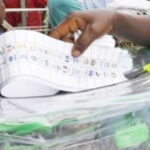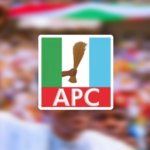The Executive Director Civil Society Legislative Advocacy Centre (CISLAC), Auwal Musa Rafsanjani, has said that many Nigerian voters intentionally went to polling booths with the intention of selling their votes to the highest bidder.
Rafsanjani, who is also the Coordinator of the Transparency International (TI) in Nigeria, said this on Tuesday in Abuja at the inception meeting on “Strengthening Accountability Networks among Civil Societies (SANCUS)”.
“In the in the 2019 General Elections, more than one quarter of voters went to polling booths with the intention of selling their votes to the highest bidder,” Rafsanjani said.
According to him, the overbearing influence of money in politics as exemplified in some recently conducted election was a cause for worry and that checking the misuse of money in politics would prevent subversion of the will of the people.
“This project comes to Nigeria at the critical juncture of the pre-election period for 2023 elections. We all know what is at stake and I would like to invite us to discuss how to mitigate the role of dirty money in the upcoming electoral cycle.
“On the positive side, the necessary institutional and legal infrastructure is in place. We have the Independent National Electoral Commission (INEC) and laws in place that, in theory, should regulate how money enters politics.
“On the negative side, we seem to have so much money in politics that it seems to have the power to erode our institutions. Our laws are not enforced or are out rightly ignored,” he said.
He said that SANCUS project running from January 2021 to December 2023 is being implemented by Transparency International Secretariat through its chapters in 21 countries with support from the European Commission.
He said, “The aim to improve democratic accountability of public institutions globally by empowering CSOs to demand for systemic change to address accountability and anti-corruption deficits. The SANCUS project focuses on contributing to tackling the core problem of dirty money in Nigeria’s politics.”
On his part, INEC National Commissioner and Chairman, Information and Voter Education Committee, Festus Okoye, lamented what he called ridiculously low N1m sanction provided in the Constitution to punish electoral malpractices by political parties.
According to him, the slap-on-the-wrist sanction, it declared, accounted for the disdain exhibited by political parties and their candidates in complying with directives relating to party finances and election expenses.
He said that by Section 225 of the Constitution, political parties were required to submit and publish a statement of their assets and liabilities; and were also to submit detailed annual statements and analyses of their source of funds and other assets together with a similar statement of their expenditure.
“Furthermore, Section 92(3)(b) of the Electoral Act, 2010 (as amended) provides sanctions for failure to submit election expenses report and the sanction imposed is to the effect that the defaulting political party shall on conviction be liable to a maximum fine of N1m.
“Additionally, Section 92(6) of the Electoral Act 2010 provides that any political party that incurs election expenses beyond the limit stipulated in the law is guilty of an offence and shall on conviction be liable to a maximum fine of N1 million and forfeiture to the Commission of the excess amount.
“Civil society groups and organisations must mount and sustain advocacy for reasonable, rational and deterrent sanctions,” he said.




